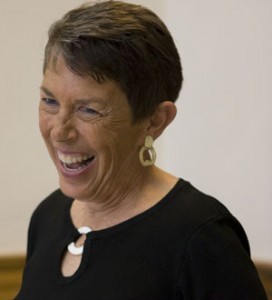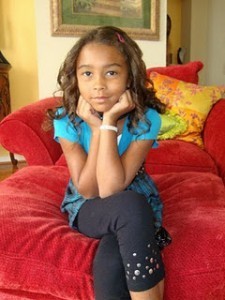Stephen Gallup's Blog, page 9
February 27, 2012
What have I learned from hardship?
Sweet are the uses of adversity,
Which like the toad, ugly and venomous,
Wears yet a precious jewel in his head.
– As You Like It, Act II. Scene I
My dad was fond of tossing off quotations from the classics, and this one was probably his favorite. Or maybe I heard it a lot because I spent too much time telling him about my problems. My response to this philosophy was probably a bored shrug.
In those days I knew a little about adversity, knew we all encounter difficult patches (or worse) in life, knew not to indulge in self-pity when events failed to follow my script. But I didn't see the point of looking for silver linings. Resolution was the thing that interested me.
That's why, when I became the father of a baby who had major problems, it never once occurred to me to look on the bright side. My kid depended on me! Quite obviously, he needed something that wasn't being provided. The doctors weren't losing any sleep trying to understand the situation. The only remaining line of defense was his mother and me. So we devoted the next several years to the challenge of setting things right.
That response still makes sense to me. All of us take steps to deal with our problems. If we have a toothache, we go to the dentist. If we're lonely, we seek out friends. If we don't have enough money, we save or try to get more.
So far, so good, but not all problems have such obvious remedies. What do we do when Plan A fails? Do we just try harder? Do we attack from some new direction?
Sometimes the thing never goes away.
Ultimately, that is why I thought What About the Boy? needed to be written. Not just because one kid in six has a developmental problem of one sort or another, but because people untouched by disability have other difficulties that they may argue are even worse. While some lives are easier than others, no one has much reason to feel complacent. I don't mean for this to bring you down, but if trouble isn't besetting you right now, it's coming. It's on the exit ramp from the freeway. Don't be surprised when it shows up.
So when someone suggests that my book might be for only a very narrow, niche market, I feel stumped. "Wait!" I want to yell. "I forgot to tell you about the vampires!"
Of course, reading fantasy can be a nice diversion that empowers us to come back and cope with our issues a little longer. I have no argument with that. It's just that I wanted to do more than cope. I wanted to win.
My son Joseph achieved significant improvements. His quality of life today is measurably better because of the interventions his mother and I pursued.
But we wanted more. We believed–I still believe–that it was reasonable, right, and just to want more, to claim more, to expect more. We believed a full recovery was his birthright.
When we could not bring that about via human resources, we listened to people who showed us Scripture promising that God answers prayers, We didn't want to hear other interpretations, those extolling the virtues of patience, fortitude, even brokenness.
This problem broke us. Judy died. My own life then took an unexpected course and–as a direct result of Joseph's disability–has been transformed in remarkable ways. And yet I still fail to see how this is in Joseph's interests.
I hope the story in WATB illustrates the importance of taking a stand when doing so seems right. I expect readers will see that, over time, devotion to a good cause may not always inspire the use of good sense. But I feel that something more is yet to be learned here. Maybe I'm still too close to it.
February 7, 2012
And now a few words from the professor
 Although I'd much prefer not to single out anyone's writing in this way, the following bit of promotional copy for a self-published novel illustrates a problem that's doing a lot of damage. I found this on a nicely printed postcard next to a display copy of the book in question, and the first paragraph grabbed my attention. Apparently, the book it describes is a somewhat cerebral thriller tied in with recent history. Reading it, I felt a tug of interest. This book might be good!
Although I'd much prefer not to single out anyone's writing in this way, the following bit of promotional copy for a self-published novel illustrates a problem that's doing a lot of damage. I found this on a nicely printed postcard next to a display copy of the book in question, and the first paragraph grabbed my attention. Apparently, the book it describes is a somewhat cerebral thriller tied in with recent history. Reading it, I felt a tug of interest. This book might be good!
Then came the second paragraph on the card, which begins:
Struggling with his own disillusionments and staying out of danger, _____'s search for the original treaty is complicated by his intense attraction to a Spanish dancer while at the same time being pulled closer to the woman who's been in his life…
I reacted to that sentence as if it were badly played music. It destroyed the interest that the first paragraph had created.
Surely I'm not the only one who'll respond this way. There's a time for overlooking flaws in execution. (A children's music recital comes to mind.) But someone offering work for sale to the public is held to a higher standard. And a writer's ad copy for it is supposed to represent his very best efforts. Given the enormous number of competing books available to read, it must shine. If it doesn't, readers have little incentive to venture further. I felt disappointed. I'd been in the mood to discover something new and exciting.
In view of the preference that that the mainstream publishing industry has for the tried-and-true (e.g., clones of the last bestseller, writers who already have an established fan base), we can't count on it for anything new and exciting. More so than in the past, indie authors have an important role to fill.
Actually, just a few moments earlier that evening, I'd been discussing this very problem. My friend Lynda (author of Writing for the Web) and I were discussing books with a new acquaintance at a reception. I mentioned that many indie writers have wonderful imaginations, original stories, engaging points of view—and I admire that, since I don't view my own writing as being particularly creative—but they blow it all by failing to pay attention to basic questions of grammar and delivery. I know I'm not alone here. In the blog post cited below, Mary Kay Shanley observes that "most self-published books would be wonderful first drafts." No doubt, that's why the San Diego County Library does not accept self-published books for its collection, even as gifts.
In other words, there's a tendency to generalize and make assumptions, even without reading a book's promotional copy or opening pages. Poor quality is not confined to self-published works. However, that's where the world is learning to expect it.
The lady with whom I shared my feelings about this agreed politely, and then pinned my ears back by saying, "Too bad they can't all be like us."
I don't mean to hold up my own writing as some kind of standard. If you want deathless prose (the stuff Alexander Pope described as being "what oft was thought but ne'er so well expressed"), look elsewhere. The point is just that the simple communication of ideas, feelings, moods, and experiences is at risk when, to use the above example, a writer doesn't seem to know what the subject of her sentence is.
Having an audience with whom to communicate is then also at risk.
And since WATB was the book the above library declined for this reason, I can't avoid taking this personally.
January 24, 2012
"A home run"
 Mary Kay Shanley is an author and long-time instructor at the University of Iowa's Summer Writing Festival, where she specializes in memoir. She currently has a brief commentary on What About the Boy? at her blog, from which the following is extracted:
Mary Kay Shanley is an author and long-time instructor at the University of Iowa's Summer Writing Festival, where she specializes in memoir. She currently has a brief commentary on What About the Boy? at her blog, from which the following is extracted:
"I was intrigued by the controversial practice of infant/child patterning, amazed by the medical barriers that blocked little Joseph's success, inspired by his parents' determination to move their disabled son to normalcy, and gifted by the author's ability to accept that 'normalcy' has more than one definition. Read the book. You'll be richer for the experience."
January 23, 2012
“A home run”
 Mary Kay Shanley is an author and long-time instructor at the University of Iowa’s Summer Writing Festival, where she specializes in memoir. She currently has a brief commentary on What About the Boy? at her blog, from which the following is extracted:
Mary Kay Shanley is an author and long-time instructor at the University of Iowa’s Summer Writing Festival, where she specializes in memoir. She currently has a brief commentary on What About the Boy? at her blog, from which the following is extracted:
“I was intrigued by the controversial practice of infant/child patterning, amazed by the medical barriers that blocked little Joseph’s success, inspired by his parents’ determination to move their disabled son to normalcy, and gifted by the author’s ability to accept that ‘normalcy’ has more than one definition. Read the book. You’ll be richer for the experience.”
January 18, 2012
Signifying — nothing?
 One day last week I got a call from one of the ladies running Starlight, the center where Joseph spends his days. She said he'd been acting extremely hungry of late—even to the point of trying sometimes to take food away from his peers. She wanted to know if I had any thoughts on that.
One day last week I got a call from one of the ladies running Starlight, the center where Joseph spends his days. She said he'd been acting extremely hungry of late—even to the point of trying sometimes to take food away from his peers. She wanted to know if I had any thoughts on that.
I recalled that we'd seen something similar during Joseph's last weekend home with us. We couldn't keep that guy out of the kitchen, even after he'd already polished off a lot more food than anyone else, or maybe even everyone else combined. Now, he's always had a healthy appetite, but this fixation was something new.
What was going on? I pondered a while and then posted a query to an email discussion group. This suggestion came back:
Is it possible he is mistaking pain for hunger? Perhaps a GI check to make sure nothing is going on?
Someone else wondered whether parasites could be involved.
After a delay, I reached Joseph's doctor (whose latest word on WATB, by the way, was that it was too emotionally challenging for him to read past the first chapter, being the father of a little one himself). We discussed the situation and he promptly ruled out parasites. He thought it wouldn't be a bad idea to check the blood chemistry, but I gathered that he didn't expect it to tell us much.
Accordingly, last night I collected Joseph for a rare mid-week visit and took him in to the lab bright and early this morning for a blood draw. I will say that, in the few hours he was with us this time, he showed no unusual interest in food.
Driving him back to Starlight afterwards, I reflected on how very typical this scenario is—not only of most of our life together but also of what I can see of other families like ours. There's the existing, chronic, low-grade worry that we always live with, and then something new comes along. Something like this could potentially be the symptom of a new complication, and for that reason we can't just ignore it. At other times, the excitement is sparked by new information (generally in the form of something I've read) that merits investigation as a way of learning more about Joseph's still-undiagnosed basic problem.
For us, every single time this has happened, it has led nowhere. In keeping with that pattern, I expect the doctor will have been right about the blood test telling us nothing. I expect Joseph's fixation on food will likely taper off. Or if it doesn't, it will be pegged as yet another behavioral issue.
Because I believe Joseph understands me most of the time, I talked in the car about the apparent futility of all these endeavors. I talked, as I so often do, about how desperately I need him to tell me what he's experiencing. I told him about the footage, that recently went viral, about the autistic girl who communicates by typing. I sketched out, for maybe the one-thousandth time, the benefits he would enjoy if he had a comparable outlet.
By this time, we had parked across the street from Starlight. I realized that I'd lost Joseph's attention. He still listened politely, or patiently, but he was looking past me at the building. He wanted to go in there and get on with his day. So we said good bye. Or, rather, I did.
January 14, 2012
"I have not read a book with so much heart"
 The above kind thought was expressed by Louise Gillespie, just prior to hosting an interview with me on Women's View Radio, January 10. I thought this was a particularly good interview (and not only because she had so many nice things to say about WATB). Often, hosts don't have an opportunity to read the book in advance. Sometimes, they don't even know much about the topic. Those were not problems this time! Also, numerous questions from listeners around the country added depth to the conversation. I'm trying something different in this post. Click the image to the left to hear the audio, or if like me you're a visual person, click here to open a transcript of what was said.
The above kind thought was expressed by Louise Gillespie, just prior to hosting an interview with me on Women's View Radio, January 10. I thought this was a particularly good interview (and not only because she had so many nice things to say about WATB). Often, hosts don't have an opportunity to read the book in advance. Sometimes, they don't even know much about the topic. Those were not problems this time! Also, numerous questions from listeners around the country added depth to the conversation. I'm trying something different in this post. Click the image to the left to hear the audio, or if like me you're a visual person, click here to open a transcript of what was said.
'I have not read a book with so much heart'
 The above kind thought was expressed by Louise Gillespie, just prior to hosting an interview with me on Women's View Radio, January 10. I thought this was a particulary good interview (and not only because she had so many nice things to say about WATB). Often, hosts don't have an opportunity to read the book in advance. Sometimes, they don't even know much about the topic. Those were not problems this time! Also, numerous questions from listeners around the country added depth to the conversation. I'm trying something different in this post. Click the image to the left to hear the audio, or if like me you're a visual person, click here to open a transcript of what was said.
The above kind thought was expressed by Louise Gillespie, just prior to hosting an interview with me on Women's View Radio, January 10. I thought this was a particulary good interview (and not only because she had so many nice things to say about WATB). Often, hosts don't have an opportunity to read the book in advance. Sometimes, they don't even know much about the topic. Those were not problems this time! Also, numerous questions from listeners around the country added depth to the conversation. I'm trying something different in this post. Click the image to the left to hear the audio, or if like me you're a visual person, click here to open a transcript of what was said.
January 13, 2012
“I have not read a book with so much heart”
 The above kind thought was expressed by Louise Gillespie, just prior to hosting an interview with me on Women’s View Radio, January 10. I thought this was a particularly good interview (and not only because she had so many nice things to say about WATB). Often, hosts don’t have an opportunity to read the book in advance. Sometimes, they don’t even know much about the topic. Those were not problems this time! Also, numerous questions from listeners around the country added depth to the conversation. I’m trying something different in this post. Click the image to the left to hear the audio, or if like me you’re a visual person, click here to open a transcript of what was said.
The above kind thought was expressed by Louise Gillespie, just prior to hosting an interview with me on Women’s View Radio, January 10. I thought this was a particularly good interview (and not only because she had so many nice things to say about WATB). Often, hosts don’t have an opportunity to read the book in advance. Sometimes, they don’t even know much about the topic. Those were not problems this time! Also, numerous questions from listeners around the country added depth to the conversation. I’m trying something different in this post. Click the image to the left to hear the audio, or if like me you’re a visual person, click here to open a transcript of what was said.
January 3, 2012
Family Stories
 The extraordinarily beautiful child to the left wrestles every day with attention deficit disorder. You can click the photo to learn more about her.
The extraordinarily beautiful child to the left wrestles every day with attention deficit disorder. You can click the photo to learn more about her.
I used to talk rather glibly about all such challenges, but with the passage of time I'm increasingly humbled by how very little any of us really understand. Let's just say, for the sake of having a concept we can grasp, that developmental disabilities act like partial barriers that impede messages going in to the brain (in the case of something like ADD) and/or output from the brain (in the case of something like stuttering).
Bethany, the mother of this girl, has posted a summary of my family's story on her blog. There are links to all my guest posts in the sidebar, but I'm giving this one a little more prominence because Bethany is actively looking for additional stories of how families have dealt with developmental issues. The beginning of a new year is an especially appropriate time to recall that it's mentally satisfying to fight for what we know is right. This is true even if the fight isn't going exactly as we would choose. If you have lessons to share from your own story, please contact her here.
December 27, 2011
Reading the mail
 To finish out the year, here are a few posts that have come in via the Contact page. There were a few others that asked challenging questions, and maybe those will serve as jumping-off points for future blog posts.
To finish out the year, here are a few posts that have come in via the Contact page. There were a few others that asked challenging questions, and maybe those will serve as jumping-off points for future blog posts.
From the bottom of my heart, thank you for this book.
i share your sense, for no reason as good as what experience has led you to believe, that we have to find our own path and i much admire you for sticking to it when it worked, and for realizing when it didn't.
Your story was very inspirational and I am glad I read it. I feel an emotional healing journey is something I would like to do as the result is so worth the effort!! You sound like you are in a good place and this is something we all long for. Your book has motivated me to start writing again and for this I want to say thank you.
I just finished your book. It's truly amazing. It's written with such heart felt sincerity. I got totally wrapped up in reading it. I couldn't stop and finished it in 2 days. It reads almost like a very emotional mystery novel. It was impossible to stop going from one chapter to the next. I just can't imagine how many families this will help.
I heard your show with Doug Gibbs yesterday. Your story touched me and I ask God to heal you son and you can use your experience to help others.
2nd Thessalonians 3:5




